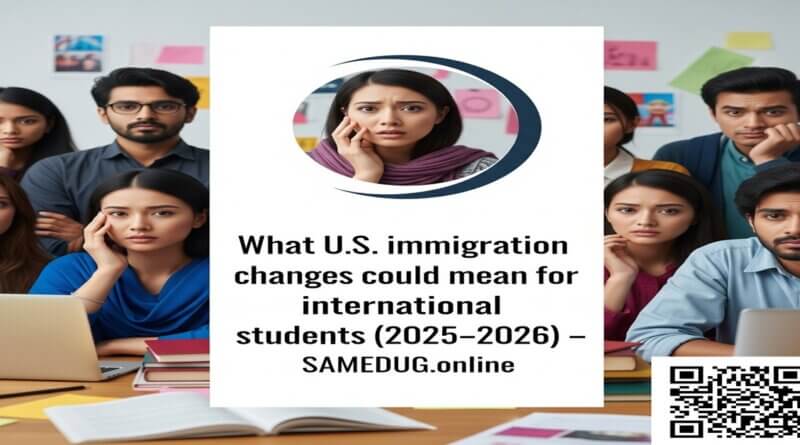What U.S. Immigration Changes Could Mean for International Students (2025–2026)
As global interest in studying in the United States remains high, understanding how proposed immigration reforms may impact international students is more important than ever. Recent discussions—especially around birthright citizenship and legal status—have raised questions for students hoping to secure academic opportunities in the U.S.
In this post, we break down the evolving U.S. immigration landscape and what it means for your education journey, scholarships, and student visa options.
Why Immigration Policy Matters for International Students
Studying abroad in the U.S. is a dream for many due to its top-ranked universities, innovation-driven learning environment, and global career opportunities. However, immigration policies can directly impact:
- Student visa application and approval processes
- Optional Practical Training (OPT) and post-graduation work opportunities
- Long-term pathways like permanent residency or citizenship for those pursuing advanced studies
Browse our Study in USA section for the latest fully funded scholarships and updates for international students.
The Birthright Citizenship Debate: What’s Happening?
In recent months, former U.S. President Donald Trump has reiterated his intention to challenge birthright citizenship—a constitutional principle that grants automatic citizenship to anyone born on U.S. soil. While this primarily affects children of undocumented immigrants, it has stirred broader debates around immigration laws and legal status.
While birthright citizenship itself does not directly affect international students (who typically enter the U.S. on student visas), the surrounding political conversation may influence:
- General immigration sentiment and public perception
- Tighter visa scrutiny for certain countries
- Renewed focus on who qualifies for in-state tuition or scholarships tied to residency
What This Means for You as a Student
If you’re applying to U.S. universities for the 2025–2026 academic year, here’s what to keep in mind:
✅ Stick to trusted, legal student visa routes (like the F-1 visa)
✅ Secure admission to a SEVP-certified institution
✅ Apply early and prepare strong documentation (academic transcripts, proof of funds, etc.)
✅ Explore fully funded scholarships in the U.S. to reduce financial stress
✅ Stay informed through your embassy, school advisors, or platforms like SAMEDUG
Best Alternatives If You’re Worried About U.S. Policy
If U.S. policy changes concern you, explore these excellent alternatives:
- Study in Canada with full scholarships
- Explore the UK’s post-study visa options
- Fully funded scholarships in Europe for Master’s students
Here is what we think
While headlines around U.S. immigration and birthright citizenship can be unsettling, international students can still thrive by following clear legal pathways and staying informed. Samedug is committed to bringing you the latest updates and study abroad resources to help you succeed.
Subscribe to our newsletter for timely updates on student visas, scholarships, and application strategies!

